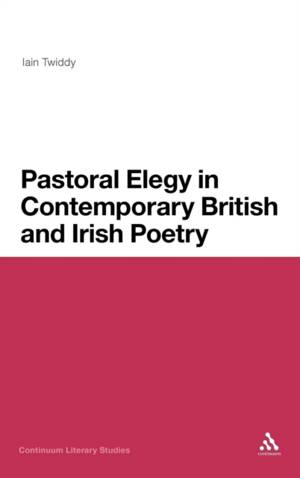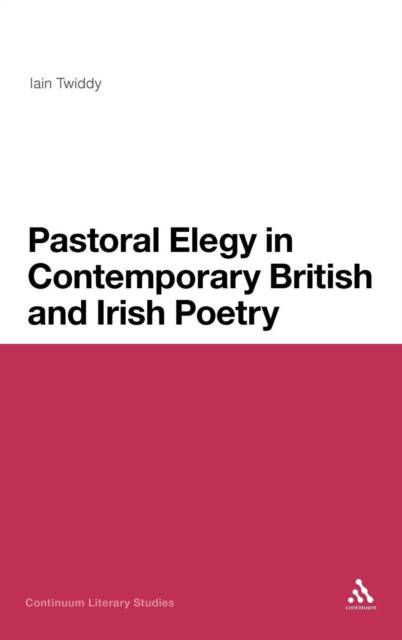
- Retrait gratuit dans votre magasin Club
- 7.000.000 titres dans notre catalogue
- Payer en toute sécurité
- Toujours un magasin près de chez vous
- Retrait gratuit dans votre magasin Club
- 7.000.0000 titres dans notre catalogue
- Payer en toute sécurité
- Toujours un magasin près de chez vous
Description
Defying critical suggestions that the pastoral elegy is obsolete, Iain Twiddy reveals the popularity of the form in the work of major contemporary poets Seamus Heaney, Ted Hughes and Paul Muldoon, Michael Longley, Douglas Dunn and Peter Reading.
As Twiddy outlines the development of the form, he identifies its characteristics and functions. But more importantly his study accounts for the enduring appeal of the pastoral elegy, why poets look to its conventions during times of personal distress and social disharmony, and how it allows them to recover from grief, loss and destruction. Informed by current debates and contemporary theories of mourning, Twiddy discusses themes of war and peace, social pastoral and environmental change, draws on the enduring influence of both Classical and Romantic poetics and explores poets' changing relationships with pastoral elegy throughout their careers. The result is a study that demonstrates why the pastoral elegy is still a flourishing and dynamic form in contemporary British and Irish poetry.Spécifications
Parties prenantes
- Auteur(s) :
- Editeur:
Contenu
- Nombre de pages :
- 304
- Langue:
- Anglais
- Collection :
Caractéristiques
- EAN:
- 9781441139412
- Date de parution :
- 17-05-12
- Format:
- Livre relié
- Format numérique:
- Genaaid
- Dimensions :
- 156 mm x 234 mm
- Poids :
- 589 g

Les avis
Nous publions uniquement les avis qui respectent les conditions requises. Consultez nos conditions pour les avis.






